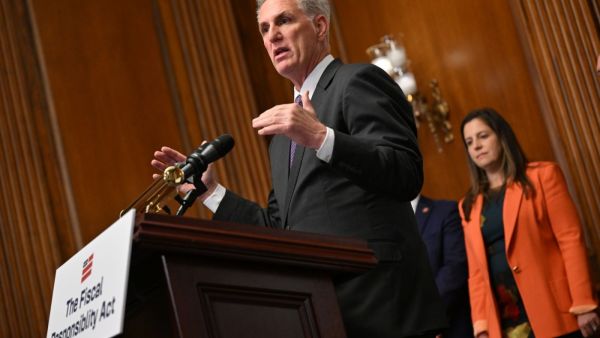Broad support for US debt ceiling deal in House, up next: Senate
ALBAWABA – Members of the United States (US) House of Representatives voted in favour of the US debt ceiling deal late Wednesday, bringing the US one step closer to averting a historic default.
The overwhelming majority of the House voted for the bill, also known as the US debt ceiling deal, at 314 to 117, according to Agence France-Presse (AFP).
Votes in favour of the bill came from representatives from both ends of the US political party spectrum, the agency reported.
Next step for the President Joe Biden’s administration is to get the bill through Senate.
Like the House, the US Senate has seen several Republicans speaking out against the bill.
The bill, should it clear Senate, will suspend the US debt ceiling, or borrowing limit, until 2025. The bill also trims nearly $1.5 trillion from projected federal budget deficits over the 10 years, and caps a myriad of government spending items, as well as military spending.
"At best, we have a two-year spending freeze that's full of loopholes and gimmicks," said Representative Chip Roy, a prominent member of the hardline House Freedom Caucus.
The Congressional Budget Office expects that spending caps will require $64 billion in cuts next year, Bloomberg reported.
But White House officials claim they have a side deal to counteract most of those cuts, effectively realising an overall spending freeze.
Politically, it allows Biden and Congress to set aside the issue until after the November 2024 presidential election.
Notably, the US reached its national debt ceiling limit in January, and has since been running on the Treasury Department’s extraordinary measures.
To avoid a default, Biden’s administration must clear this bill through congress before June 5. As June 4 is when the United States runs out of cash to pay its due debts and bills, according to the Treasury Department.
These bills are due June 1, but both House Speaker Kevin McCarthy and Biden warned of inevitable delays, while reaffirming that a US default is off the table.

Failing to pass this bill through congress on time will have devastating economic effects on the US and possibly the rest of the world.
Furthermore, a default could precipitate a crisis in the foreign exchange markets, as the US dollar plays a pivotal role in global trade and finance.







